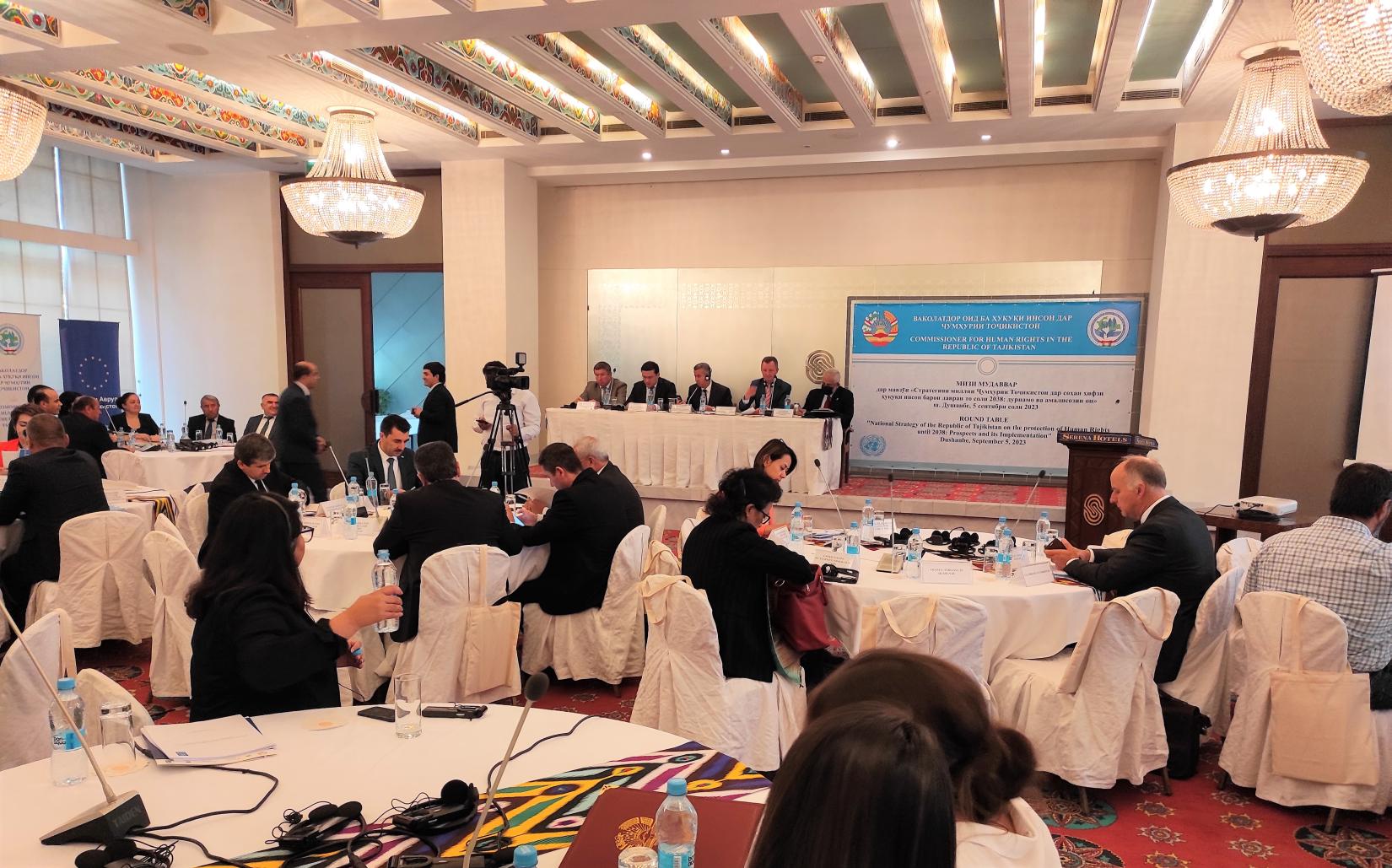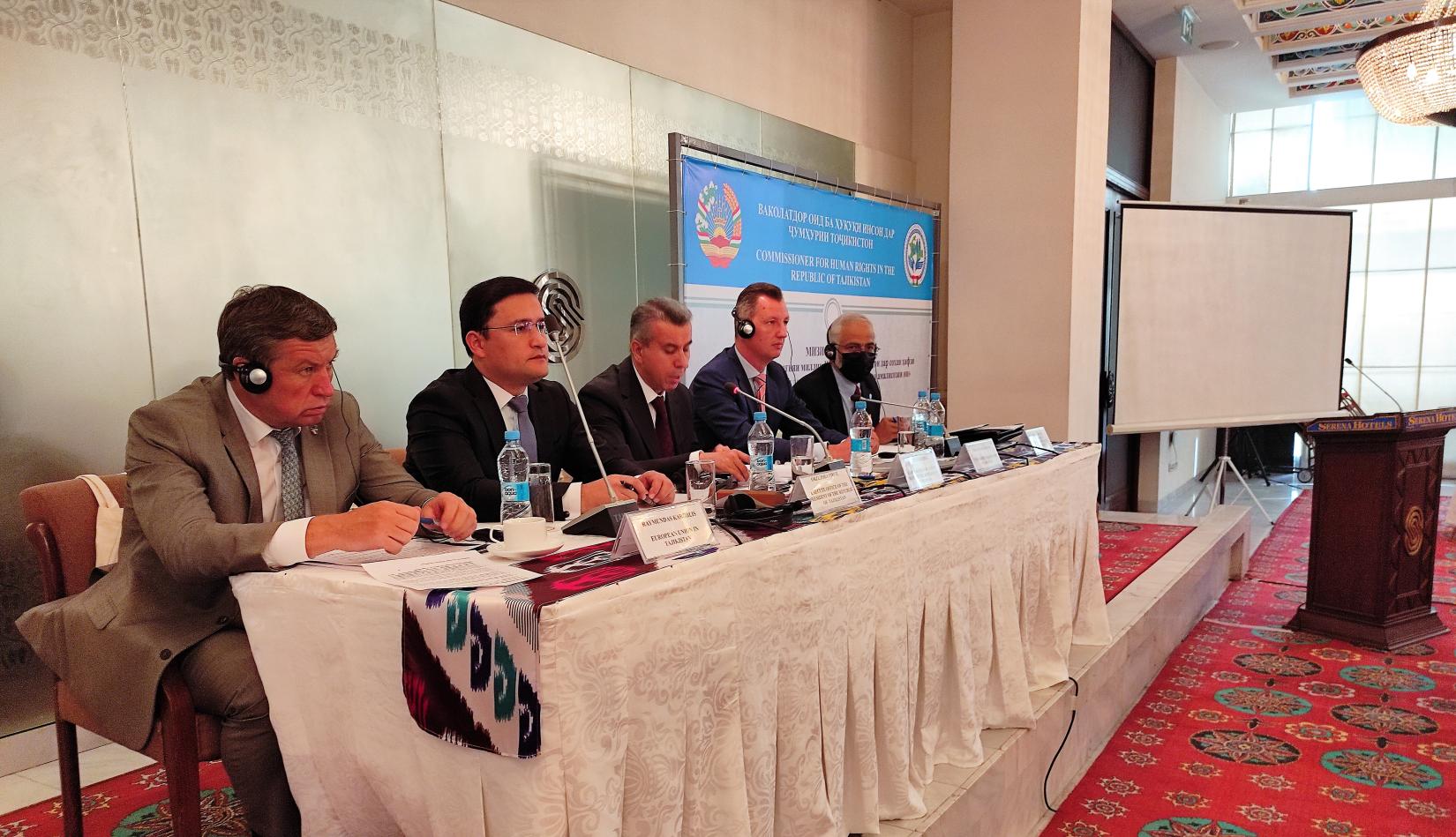United Nations Supports Discussion of the Human Rights Strategy Implementation
05 September 2023
The round table “National Strategy for Protection of Human Rights in the Republic of Tajikistan until 2038: Prospects and Implementation”, co-organized by the Office of the Commissioner for Human Rights in Tajikistan, OHCHR Regional Office in Central Asia and the Delegation of the European Union in Tajikistan, took place on 5 September in Dushanbe.

More than 60 participants, including government representatives, civil society activists and international partners discussed the implementation of the recently adopted National Strategy for Human Rights Protection.
In his opening remarks, Mr. Umed Bobozoda, the Commissioner for Human Rights, stated that “the National Strategy on the Human Rights Protection links all existing and future action plans aimed at implementation of the recommendations of UN human rights mechanisms”. “The Strategy and its action plan are an important tool for realization of the unified policy of Tajikistan in the area of human rights”, he added.
Mr. Firuz Orzuzoda, Head of the Department of the Human Rights Guarantees of the Executive Office of the President of Tajikistan highlighted that 142 action points of the Strategy cover practically all human rights areas. He also explained that its monitoring and evaluation will be done jointly in consultation with civil society.

Pavlo Byalyk, Human Rights Advisor in Tajikistan, speaking on behalf of UN Resident Coordinator in Tajikistan, Ms. Parvathy Ramaswami, welcomed the adoption of the Strategy and stressed that while a policy and legal framework is important for human rights protection, it has to be complemented with the strong national human rights protection system, independent judiciary as well as political environment, conducive to the functioning of civil society. He also urged the Government of Tajikistan to make public pledges to ratify remaining human rights treaties, including CRPD and OPCAT, as part of the UDHR75 campaign.
The Ambassador of the European Union to Tajikistan, H.E. Raimundas Karoblis recalled that the adoption of the National Strategy was an important recommendation from the HRC Universal Periodic Reviews of Tajikistan. At the same time, the existence of the National Strategy is an important step in view of Tajikistan’s ambition to join the EU’s Generalised Scheme of Preferences Plus (GSP+). “While the adoption of the National Strategy is an important starting point, a thorough implementation remains essential to further advance human rights in Tajikistan”, the Ambassador emphasized.

During the roundtable, participants also discussed the Strategy and its action plan with focus on juvenile justice, equality and non-discrimination, rights of persons with disabilities, right to fair trial and due process as well as cooperation of authorities and civil society on human rights. All thematic discussions contained statements from both representatives of authorities and civil society organizations, who acknowledged their good and successful cooperation.

